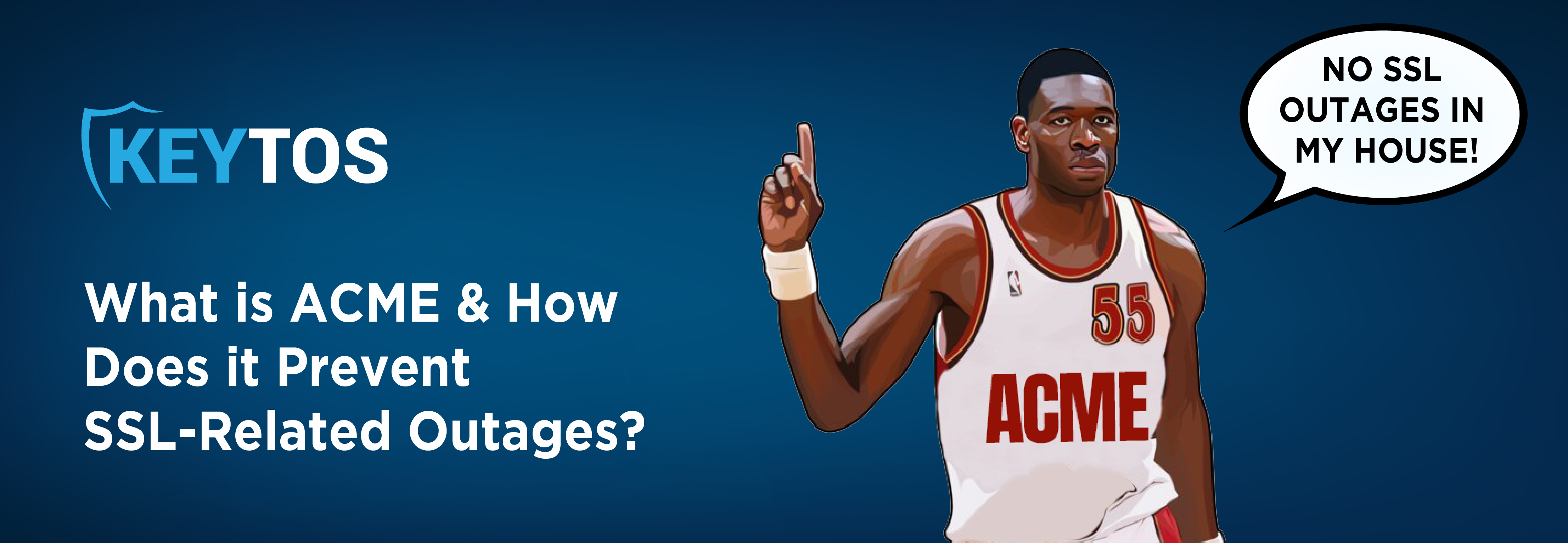
What is ACME? How Does ACME Prevent SSL-Related Outages?
As the need for secure and compliant data transactions (of all sorts) continues to skyrocket, the use of SSL and TLS certificates has become increasingly prevalent. Issued by Certificate Authorities (CAs), these bad boys ensure that the data between the client and the server is properly encrypted and, ultimately, secure. But what happens when certificates expire or don’t get renewed in a timely fashion? Well, websites, services, apps, and all sorts of other systems could face outages, compromising both trust and user experience. No Bueno. In an effort to nip this problem in the bud, ACME protocol was created. Simply put, it was built to automate and streamline the entire process of certificate management. In this following blog, we’ll take a look into the details of the ACME to understand how it helps in preventing SSL related outages.
What is ACME?
ACME stands for Automated Certificate Management Environment. If you’re not familiar, may I suggest looking at this article that offers a more robust explanation about how ACME works? At a very high level, ACME is a protocol developed by the Internet Security Research Group (ISRG) for automating interactions between certificate authorities and their users’ web servers. The primary goal of ACME was to make the whole process of certificate management more efficient and secure by automating the entire process from issuance to revocation.
How Does ACME Prevent SSL Related Outages?
Automated Certificate Renewals
Expired certificates have historically been the primary cause of certificate-based outages. Before ACME, managing certificates was a HIGHLY manual process. It demanded expert-level record-keeping, particularly within large enterprises that are responsible for multiple domains. Even the most experienced Security Engineers can miss a renewal due to the sheer complexity of the admin process of doing this manually. ACME’s automated renewal capabilities continuously monitor the certificate’s validity, ensuring timely renewals and eliminating the human error component altogether. This ultimately eliminates the risk of outages while maintaining both availability and trust.
Error Reduction through Automation
Human errors, from typos to the egregious misconfiguration of systems, present vulnerabilities and are one of the main drivers of outages. By shifting to an automated approach, ACME substantially reduces the likelihood of such errors. You’re killing two birds with one stone here by securing your certificates while simultaneously alleviating the administrative burden on your Security Team.
Streamlined Operations with Standardization
One of the key problems with manual certificate management is the variability in processes depending on the Certificate Authority or the nature of the certificate. ACME brings standardization to the forefront. With a consistent method for domain validation, certificate issuance, and management, potential risks associated with varied procedures are eliminated. This consistency ultimately minimizes potential outages by removing variables from the equation.
Enhanced Monitoring and Notifications
If for any reason a certificate faces issues or is nearing expiration, admins can receive instant notifications, enabling them to take swift corrective action before any potential outage occurs. Apart from the actual automation of certificate issuance and renewal, ACME-compatible systems often provide real-time monitoring and alerting capabilities.


